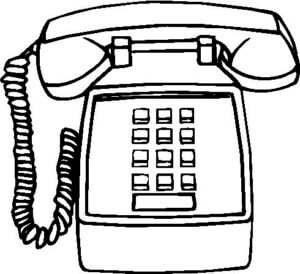
A telecommunications landline is a phone that uses copper pairs on a physical cable, sometimes called a dedicated line. This cable runs from a phone or cable company’s central office, where they supply dial tone directly to your house or apartment. They get to your house by way of underground copper cables or on telephone poles and terminate on the wall where your phone is plugged in. These older landlines will almost always work in a natural disaster. They connect through wires and depend on a very low voltage. In a power outage your phone company has generators that will keep phones working indefinitely. So, if your landline is older, that’s even more reason to keep this service.
Many newer landlines won’t work in a power outage because they use newer technology called VOIP (voice over internet protocol). These lines transmit phone service over the same cable and wires used for the home’s internet connection. If your landline and internet are connected with a shared (bundled) VoIP line they are connected to a household internet gateway device, when the power goes out, so will your phone.
Many people today are getting rid of their landlines and relying on mobile or cell phones for their sole means of communications. Cell phones are different than hard-wired phones as they use radio waves transmitted from cell sites (towers). Cell phones don’t always work during hurricanes or other natural disasters. Hurricane Harvey knocked out internet and telephones service to almost 200,000 homes, more than 360 cell towers and 16,911 call centers. A study from the Federal Communications Commission shows that about 1,000 cell towers were knocked out during Hurricane Katrina. While you can charge a cell phone through a vehicle adapter, it might not work if the nearby cell towers are damaged.
For these reasons, it’s always a good idea to keep a hard-wired landline phone in your home.